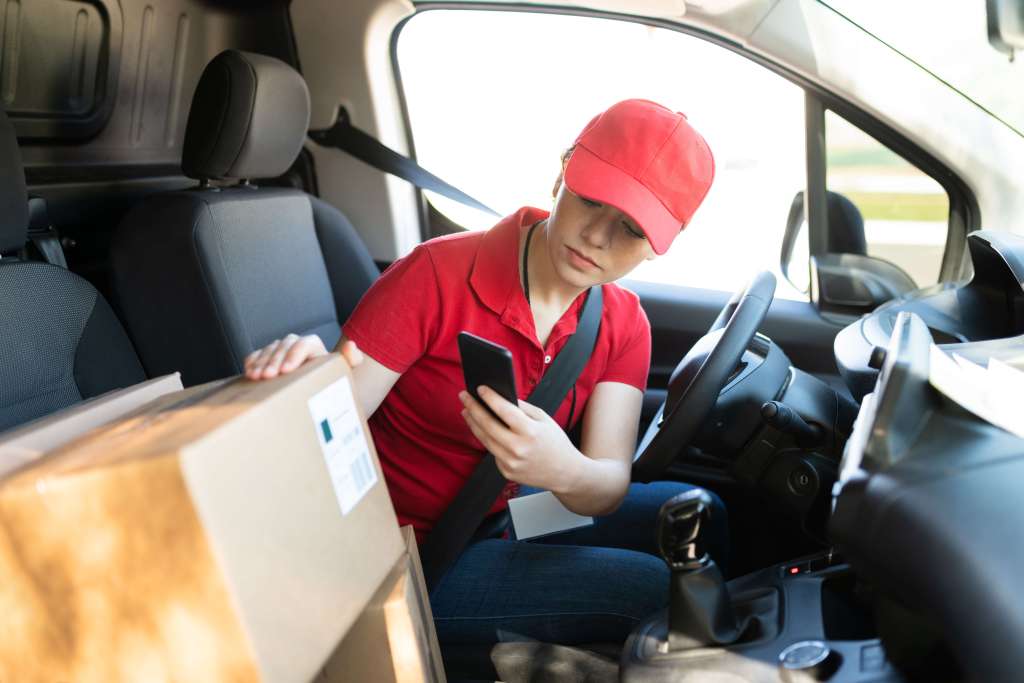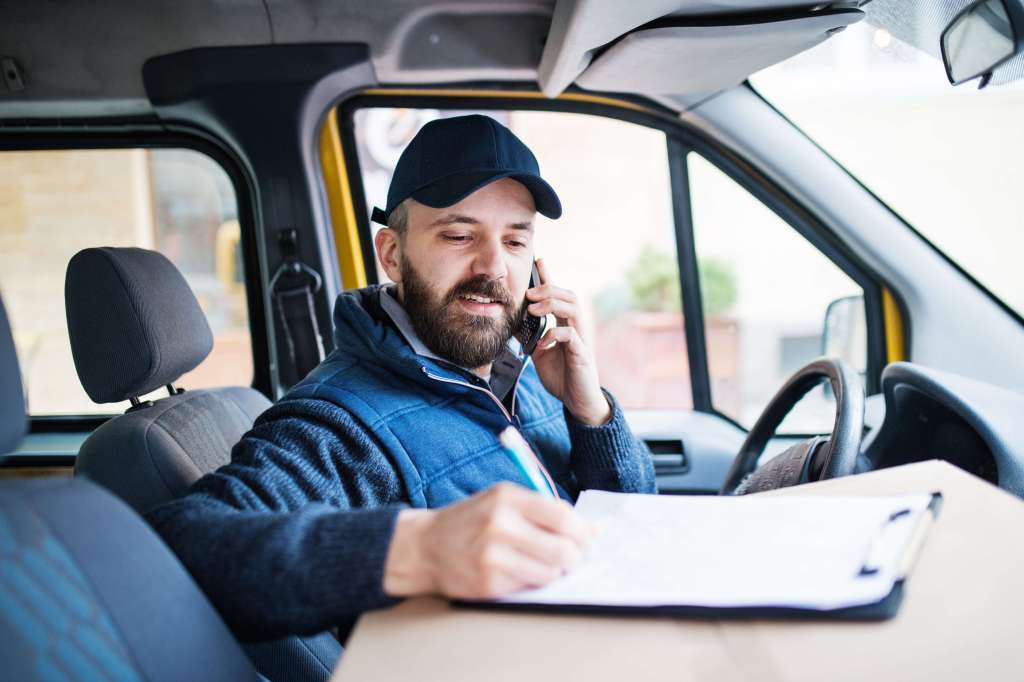Starting a man and van business gives you the opportunity to earn money quickly with low start-up costs.
We’ve put together an overview of all the things you need to know to get your van business up and running, such as the equipment you’ll need, how much money you could make, and how to register your business.
Read on to find out our top tips to starting a man with a van business, including getting the right van, finding your niche, and promoting your business.
What does a man and van business do?
A man and van business is a self-employed service that helps its customers to move items, complete deliveries, or carry out odd jobs that a van may be needed for.
Most man with a van businesses will serve a specific area and are often viewed as a cheap solution that can help out at short notice.
Your aim when setting up a van business will be to build up clients through repeat business, while also helping with one-off jobs.
How much does a man with a van earn?
You can make a good living from offering a van service, particularly once you start receiving repeat business. Man with a van businesses are seen as a cost-effective way to move home or transport items, and most companies charge by the hour.
According to Checkatrade, the average hourly cost for one person and a van is £64. This rises to £78 for two people and van, and £94 for three people and a van.
Every job will be different depending on what you need to do and how long it’ll take. For example, you could charge around £150 for helping with a removal which takes three hours, while a competitive price for a delivery which takes one hour is likely to be around £50.
You’ll be able to charge more if you have a bigger van or more than one member of staff.
When quoting prices, you’ll also need to consider how far you need to travel, whether you’ll be needed to help move items, and whether there is any specialist work that needs doing.
It’s important to offer competitive prices, especially against traditional removals and courier services. However, your pricing should be consistent if you want to build a client base and you’ll need to make sure each job is worthwhile for how much you’re getting paid.
What are the pros and cons of running a man with a van business?
Advantages
- low start-up costs – once you have your van, you can get up and running quickly without needing to spend on things like stock or office space
- you’re always on the move – if you like travelling and don’t like being stuck in an office, this could be the perfect job for you
- every day is different – you’ll be doing a range of jobs each day in different locations, so it’s unlikely your working week will feel repetitive
- working with people – interacting with a wide range of customers will be a big part of your job, so you’re likely to thrive if you’re a people person
Disadvantages
- it’s a physical and demanding job – there’ll be a lot of lifting involved and you’ll need to be prepared for long days
- you’ll be travelling a lot – most of your days will be spent in the van and you’ll have to deal with lots of traffic if you’re based in a city
- the work may be inconsistent – you won’t have a fixed income and building up a client base from scratch can take time
- time management can be challenging – sometimes it’ll be hard to know how long each job may take, which could put you under pressure when the traffic is bad or a previous job took longer than you thought
Man with a van business ideas
Once you’re up and running with your van, there are a range of jobs you can do. It’s important to be versatile and willing to do odd jobs such as getting rid of rubbish or transporting goods.
Here’s an overview of three of the most common things you’ll be doing:
- removals – rather than being a conventional removals business, you can fill in at short notice, or help people who’re looking to move one big item such as a sofa
- house clearance – clearing empty properties is a good way to make money, you may also find items which have resale value
- deliveries – you don’t want to become a courier service, but having regular clients who use you for deliveries is a good way to make sure business is consistent
Getting a van for your business
Getting a business van will be your first consideration. You’ll need to think about the size of van you want, (something bigger if you’re planning on doing a lot of removals), and it’s important that you get a reliable vehicle as you’ll be using it every day.
Our guide to the best business vans gives you an overview of whether you should buy or lease a van and the tax breaks available.
You may also consider getting an electric van as they’re good for the environment and cost less to run. Our guide to electric cars and vans for business explains more about the tax incentives available and some of the best electric vehicles for business.
What equipment do you need?
As well as your van and your phone, there’s lots of equipment that’ll be handy on a day-to-day basis. These are some of the things you’ll need:
- heavy duty gloves
- boxes and crates
- ropes and ties
- blankets and covering sheets
- a tool box, including pliers and a tape measure

How much does it cost to set up a man with a van business?
Buying or leasing a van will be your main expense. Buying a van for business could cost between £15,000 and £30,000 new, while a second-hand vehicle could cost less than £15,000. Business van hire is likely to set you back between £150 and £250 a month.
Other costs you’ll need to consider when setting up your business include:
- incorporation costs such as registering with HMRC
- a marketing budget for leaflets and social media advertising
- insurance costs including business van insurance
- employee wages if you’re hiring extra staff
- tax and administration costs (which you may hire an accountant for)
Registering your man and van business with HMRC
Once you’ve set up your business, you’ll need to [register as self-employed with HMRC so you can pay tax. There are a range of important tax dates you’ll need to keep on top of, such as the Self Assessment deadline.
In the future, you may want to explore whether you want to stay as a sole trader or become a limited company. Our guide to the difference between sole traders and limited companies can help you to choose the best legal structure for your business.
Build your business with a marketing plan
Promoting your business will be key to getting a regular source of income from your van business.
You can generate leads by advertising across search engines such as Google and social media sites like Facebook, Twitter, and LinkedIn.
Advertising on forums like Mumsnet or online directories like ZoomInfo, Bing Places, and Yell can also help you to get your business in front of the right people.
If you have a website, make sure it’s SEO-optimised so people can find you on Google.
What’s more, encouraging customers to leave a Google review can help to improve your reputation and increase your customer base.
Our comprehensive guide to marketing your small business can help you get started.
Traditional marketing and branding
Some traditional forms of marketing may also help you to build your business, including:
- having business cards ready to hand out to potential customers
- printing branded fliers and posting them in local shops and supermarkets, as well as through people’s doors
- team up with other local businesses such as gardeners or tradespeople to earn referrals
- encourage customers to spread the word among friends and family
As a van business, two other things you’ll need to think about are the name of your business and whether you want to brand your van to make it stand out to potential customers.
What insurance do I need as a man and van business?
Sorting out your insurance is important if you’re a man with a van. The wide variety of tasks you’ll undertake will present risks that might not always be obvious.
As well as van insurance, it’s likely you’ll need goods in transit insurance to cover items while they’re in your van, and public liability insurance can protect you if goods are damaged or people are injured due to your business.
It might also be worth investing in tool insurance to protect any equipment if they’re lost, stolen, or damaged.
Are you thinking of starting a man with a van business? Let us know in the comments below.
More useful guides
- How to go self-employed in the UK
- A guide to the Data Protection Act and GDPR for small businesses
- Smart motorways scrapped
- Do I need public liability insurance?
